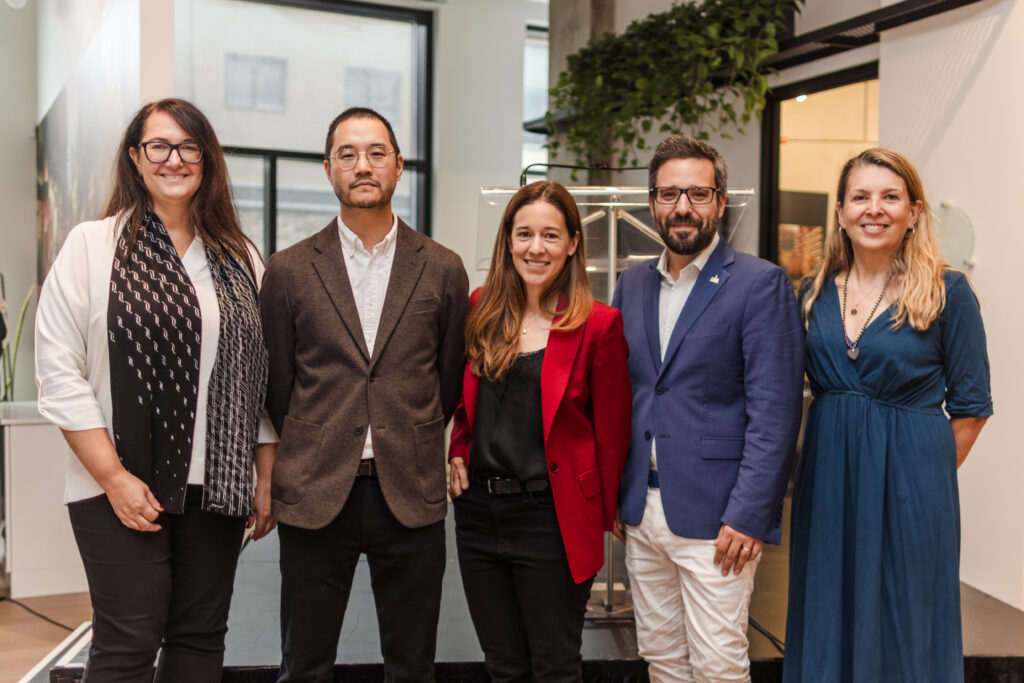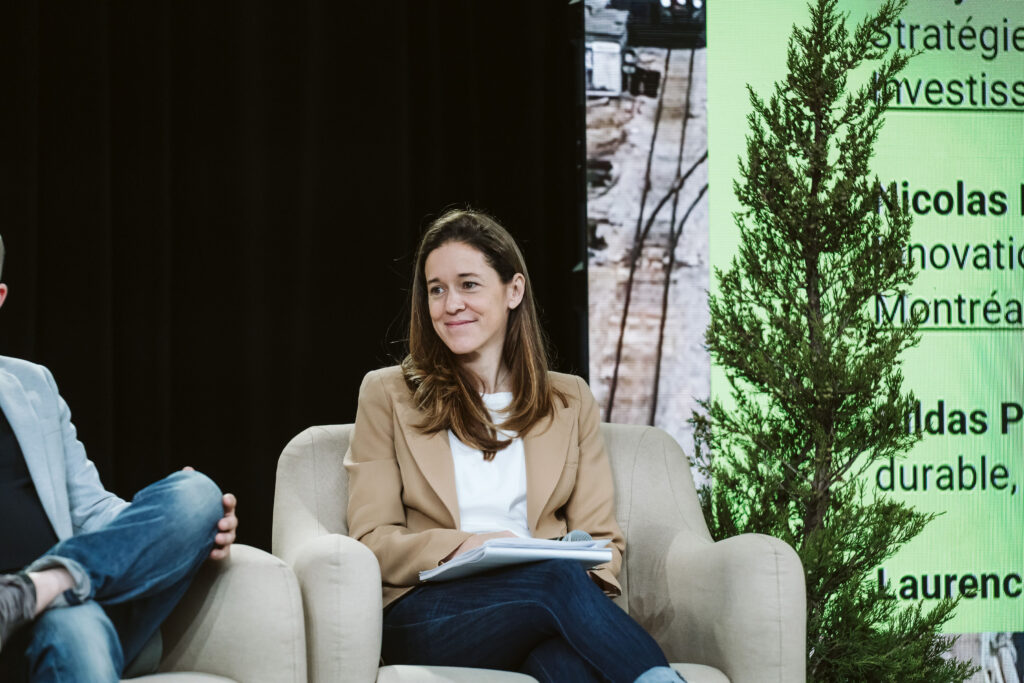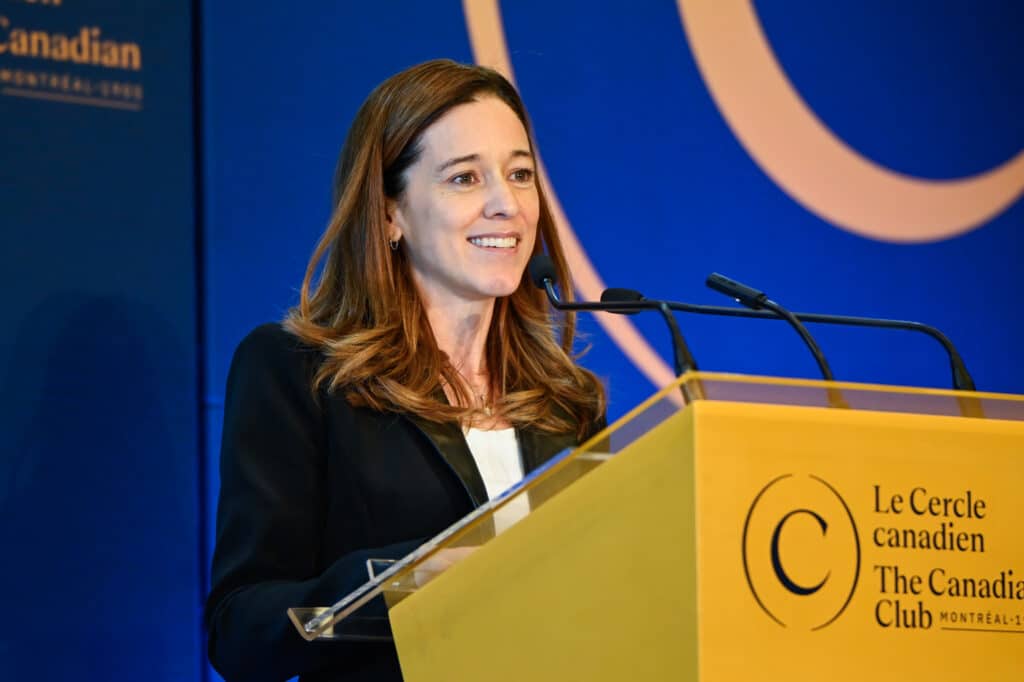A VIBRANT NEIGHBOURHOOD AT THE HEART OF THE PROJECT
From the start, Esplanade Cartier project was driven by the very DNA of the Sainte-Marie neighbourhood where it will be built. Because Prével isn’t just about concrete—it’s also about contributing to urban development, adding to the city’s architectural history, and helping people to access housing. We do this by creating spaces where people want to live and inviting Montrealers to settle in urban areas.
With Esplanade Cartier project, Prével wanted to take this idea further by creating public spaces in collaboration with a variety of experts as well as other people using the space, including the city, local merchants, residents, community groups, and more. Together, we work to better understand the neighbourhood in order to build on its strengths and make use of what’s already in place. The goal is to create a positive impact for everyone who lives there.
This co-creation enabled us determine the project’s key goals. Take a closer look at how Esplanade Cartier came to life.
A project rich in diversity
Understanding the neighbourhood we’re going to build in means first getting to know its unique personality. That’s why we selected Sainte-Marie and its eclectic vibe for this project.
We started by trying to reflect the area’s diversity—from its living spaces (social housing, town houses, condos, and more) to the wide range of services found in the area (residential, offices, stores, and community spaces). This is a neighbourhood where first-time buyers live next to families with roots in the area, and workers and locals alike stroll the sidewalks. You won’t find short-term rentals here. Instead, it is a neighbourhood that’s vibrant and lively, both day and night. The result is a space that’s not only enjoyable but safe, where locals can gather together.
City life at its finest
Creating space for more people to live in the heart of the city is a way to bring life and a touch of humanity to the area. Building diverse neighbourhoods gives residents access to a wide range of services, convenience stores, public transport, cultural and sports activities, and so much more.
That’s why we found inspiration for Esplanade Cartier in the vivacity of European cities, creating space for downtown life through a placette—an urban square—surrounded by storefronts, offices, and patios. With the help of our experts, we aim to breathe new life into commercial projects along Saint-Catherine Street East and add even more vitality to the site.
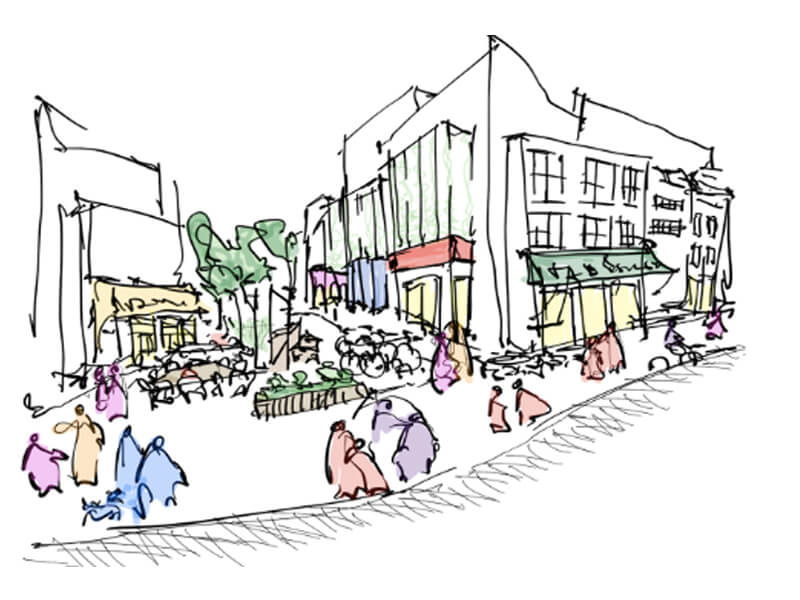
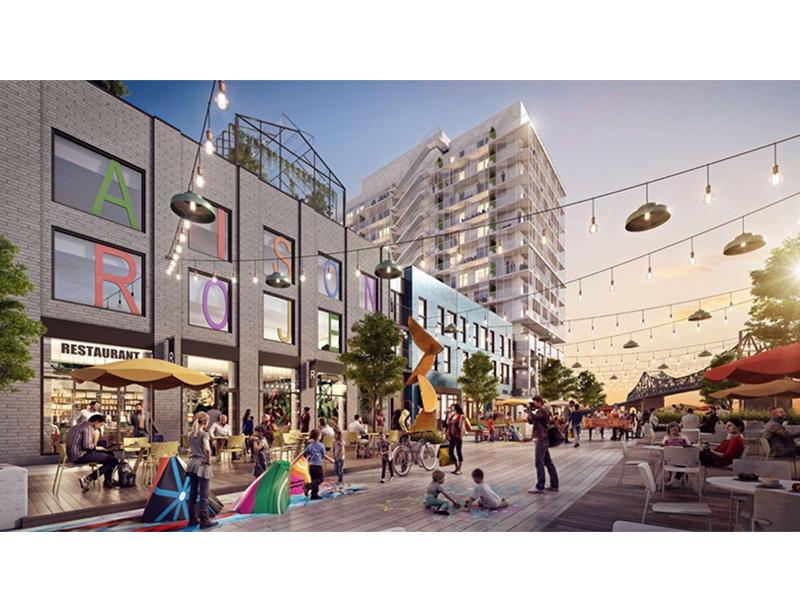
Using the existing urban structure
When it comes to the project’s architecture, we made sure that the site would blend seamlessly with the surrounding neighbourhood. The modern design takes into consideration the urban landscape, and every part of the project is built for human use.
In order to retain a feeling of openness, the building will only be 3 storeys high along the sidewalk, and the remaining floors will be built further back. This approach enables us to add more units without taking away from the feel of the neighbourhood. We’ve also staggered the project’s façade to mimic the smaller building sizes that are typical of the area. Pedestrians can stroll along the sidewalks without ever feeling overwhelmed by the building’s size.
To pay homage to the area’s rich history, we’ve also included some typical Montréal architectural elements, such as winding staircases that provide access to certain units, views of the Jacques Cartier Bridge from multiple angles, and industrial touches on the façade that hark back to earlier times.
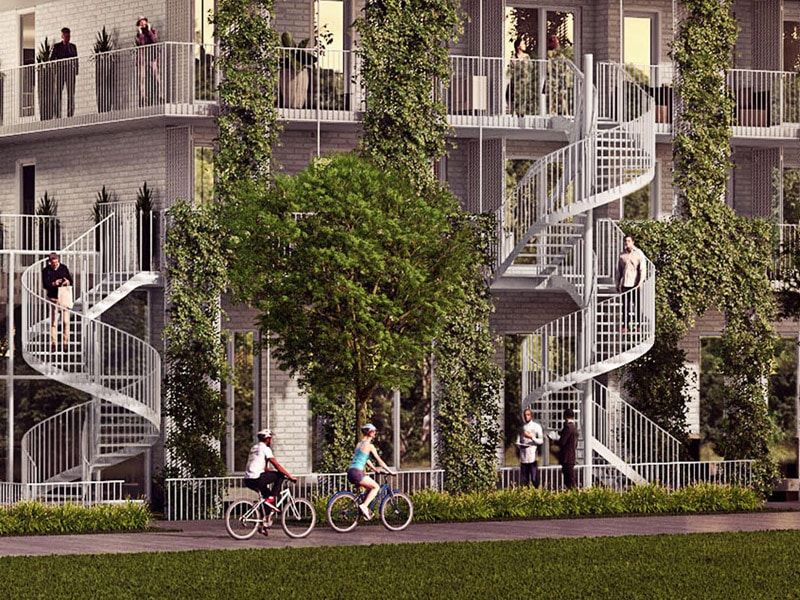
Beyond sustainability
At Prével, we believe a sustainable project is much more than one that’s earned LEED certification. Sustainability is not only an ecological issue, but a social one as well, and it’s reflected in the ways people live—whether that’s being car-free thanks to close proximity to public transport, having space to enjoy the neighbourhood, or shopping locally.
We’ve built many socially sustainable elements into our project, like having a garden for local children, promoting a healthy lifestyle with Le carrefour alimentaire to help change habits, and creating an onsite Project House where local residents can get together, share ideas, and make themselves at home at Esplanade Cartier over the years. When it comes to sustainability, Prével wants to ensure we make a positive impact on the surrounding community.
A project dedicated to living harmoniously together
Creating a community for everyone means building a space where all residents can access streets and sidewalks, as well as providing areas to sit and meet together. That’s why we created Esplanade Cartier as a project that gives back to the community. Plans were constructed to ensure pedestrians can walk freely through the neighbourhood. The placette is designed to accommodate storefronts and offices, as well as provide a green space where neighbours can get together. The end result is a project that helps everyone live harmoniously together.
What’s more, Esplanade Cartier offers ample reasons for people to get out and enjoy the neighbourhood, with thoughtful amenities like open-air cinema spaces, children’s games, temporary art exhibits, and much more.
Making a difference, once project at a time
Many years ago, Prével was at the forefront of building innovation thanks to the way we created our projects’ shared spaces, including elements like rooftop patios, urban chalets, and courtyards. Today, these public gathering areas are helping to promote densification with a truly human touch.
Like every Prével project, Esplanade Cartier is a site that’s set to make a difference and create a positive impact in the community—reflecting back all that the neighbourhood has to offer.
